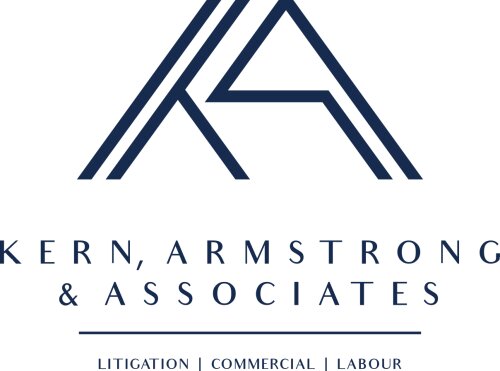Best Antitrust Lawyers in Randburg
Share your needs with us, get contacted by law firms.
Free. Takes 2 min.
List of the best lawyers in Randburg, South Africa
About Antitrust Law in Randburg, South Africa
Antitrust law in Randburg, South Africa, is aimed at promoting fair competition and preventing practices such as monopolies and cartels that could harm consumers and other businesses. The Competition Act of 1998 is the primary legislation governing antitrust in the country, with the Competition Commission and Competition Tribunal overseeing enforcement.
Why You May Need a Lawyer
You may need a lawyer in antitrust cases if you are facing allegations of anti-competitive behavior, such as price-fixing or abuse of dominance. Additionally, if you are a business seeking to merge with another company or you believe your rights have been violated by competitors, legal advice can help protect your interests.
Local Laws Overview
Key aspects of local laws relevant to antitrust in Randburg include rules against anti-competitive agreements, abuse of dominance, and mergers that substantially lessen competition. Businesses must comply with these laws to avoid penalties and legal consequences.
Frequently Asked Questions
1. What is considered anti-competitive behavior?
Anti-competitive behavior includes practices like price-fixing, market allocation, and collusive tendering that restrict competition and harm consumers.
2. What are the penalties for violating antitrust laws?
Penalties for violating antitrust laws can include fines, injunctions, and criminal prosecution for individuals involved in illegal conduct.
3. How can I report antitrust violations?
You can report antitrust violations to the Competition Commission, which investigates complaints and takes action against companies engaging in anti-competitive behavior.
4. What is abuse of dominance?
Abuse of dominance occurs when a company with substantial market power engages in conduct that harms competition, such as predatory pricing or exclusionary practices.
5. Do small businesses need to comply with antitrust laws?
Yes, all businesses, regardless of size, must comply with antitrust laws to ensure fair competition in the marketplace.
6. Can competitors collaborate on certain projects?
Competitors can collaborate on legitimate projects that benefit consumers and do not restrict competition, but they must avoid agreements that harm competition.
7. What is the role of the Competition Tribunal?
The Competition Tribunal adjudicates competition cases, including mergers and prohibited practices, to ensure compliance with antitrust laws.
8. How long does an antitrust investigation typically take?
The length of an antitrust investigation can vary depending on the complexity of the case, but it typically takes several months to resolve a complaint.
9. Can individuals file private antitrust lawsuits?
Yes, individuals can file private antitrust lawsuits to seek damages for losses caused by anti-competitive conduct, such as price-fixing or abuse of dominance.
10. How can a lawyer help with antitrust compliance?
A lawyer can help businesses navigate antitrust laws, develop compliance programs, and respond to investigations or enforcement actions by regulatory authorities.
Additional Resources
For more information on antitrust in Randburg, South Africa, you can visit the Competition Commission website or seek guidance from legal professionals specializing in competition law.
Next Steps
If you require legal assistance in antitrust matters, consider consulting with a qualified lawyer who can provide guidance on compliance, investigations, and litigation in accordance with local laws and regulations.
Lawzana helps you find the best lawyers and law firms in Randburg through a curated and pre-screened list of qualified legal professionals. Our platform offers rankings and detailed profiles of attorneys and law firms, allowing you to compare based on practice areas, including Antitrust, experience, and client feedback.
Each profile includes a description of the firm's areas of practice, client reviews, team members and partners, year of establishment, spoken languages, office locations, contact information, social media presence, and any published articles or resources. Most firms on our platform speak English and are experienced in both local and international legal matters.
Get a quote from top-rated law firms in Randburg, South Africa — quickly, securely, and without unnecessary hassle.
Disclaimer:
The information provided on this page is for general informational purposes only and does not constitute legal advice. While we strive to ensure the accuracy and relevance of the content, legal information may change over time, and interpretations of the law can vary. You should always consult with a qualified legal professional for advice specific to your situation.
We disclaim all liability for actions taken or not taken based on the content of this page. If you believe any information is incorrect or outdated, please contact us, and we will review and update it where appropriate.










